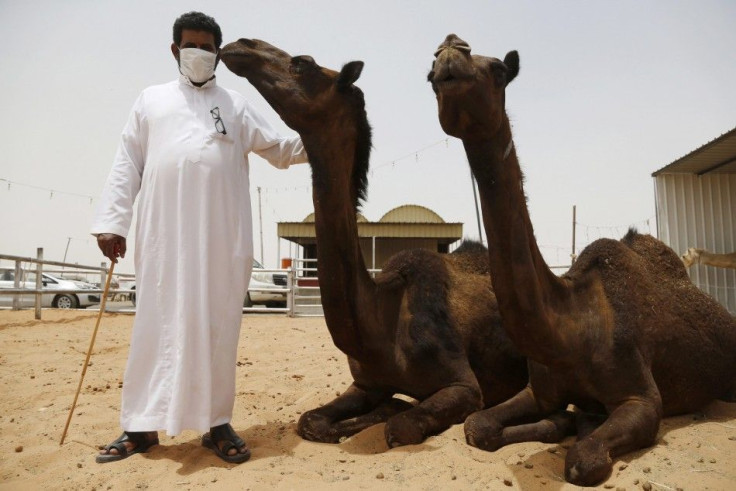Scientists Warn MERS Virus Could be Spread Airborne

A new study published in the American Society for Microbiology online journal mBio has said that the MERS-CoV virus (Middle East respiratory syndrome coronavirus) could be spread airborne.
The group of scientists, mainly composed of virologists from Saudi Arabia, made the conclusion after taking air samples from a barn holding camels afflicted with the disease.
"These data show evidence for the presence of the airborne MERS in the same barn that was owned by the patient and sheltered the infected camels," the study authors wrote.
In June, a study came out pointing to the camels in the oil-rich Saudi kingdom as the source of the MERS infection.
MERS is a serious respiratory illness that first emerged in 2012 in Saudi Arabia. It has infected at least 850 people, where 327 of them died.
The MERS virus has since spread throughout the Arabian Peninsula, the U.S., Europe and Southeast Asia.
Esam Azhar, lead author, head of the Special Infectious Agents Unit at King Fahd Medical Research Center and associate professor of medical virology at King Abdulaziz University in Jeddah, warned people who care for camels or who work for slaughterhouses. He reiterated that they should wear face masks, gloves and protective clothing, and wash their hands frequently.
As much as possible, he said to avoid tending to animals that are sick or have tested positive for the MERS virus.
He likewise advised the pasteurization of camel milk as well as proper cooking of camel meat.
"The clear message here is that detection of airborne MERS-CoV molecules, which were 100 per cent identical with the viral genomic sequence detected from a camel actively shedding the virus in the same barn on the same day, warrants further investigations and measures to prevent possible airborne transmission of this deadly virus," Azhar said.
"This study also underscores the importance of obtaining a detailed clinical history with particular emphasis on any animal exposure for any MERS-CoV case, especially because recent reports suggest higher risk of MERS-CoV infections among people working with camels," he added.





















